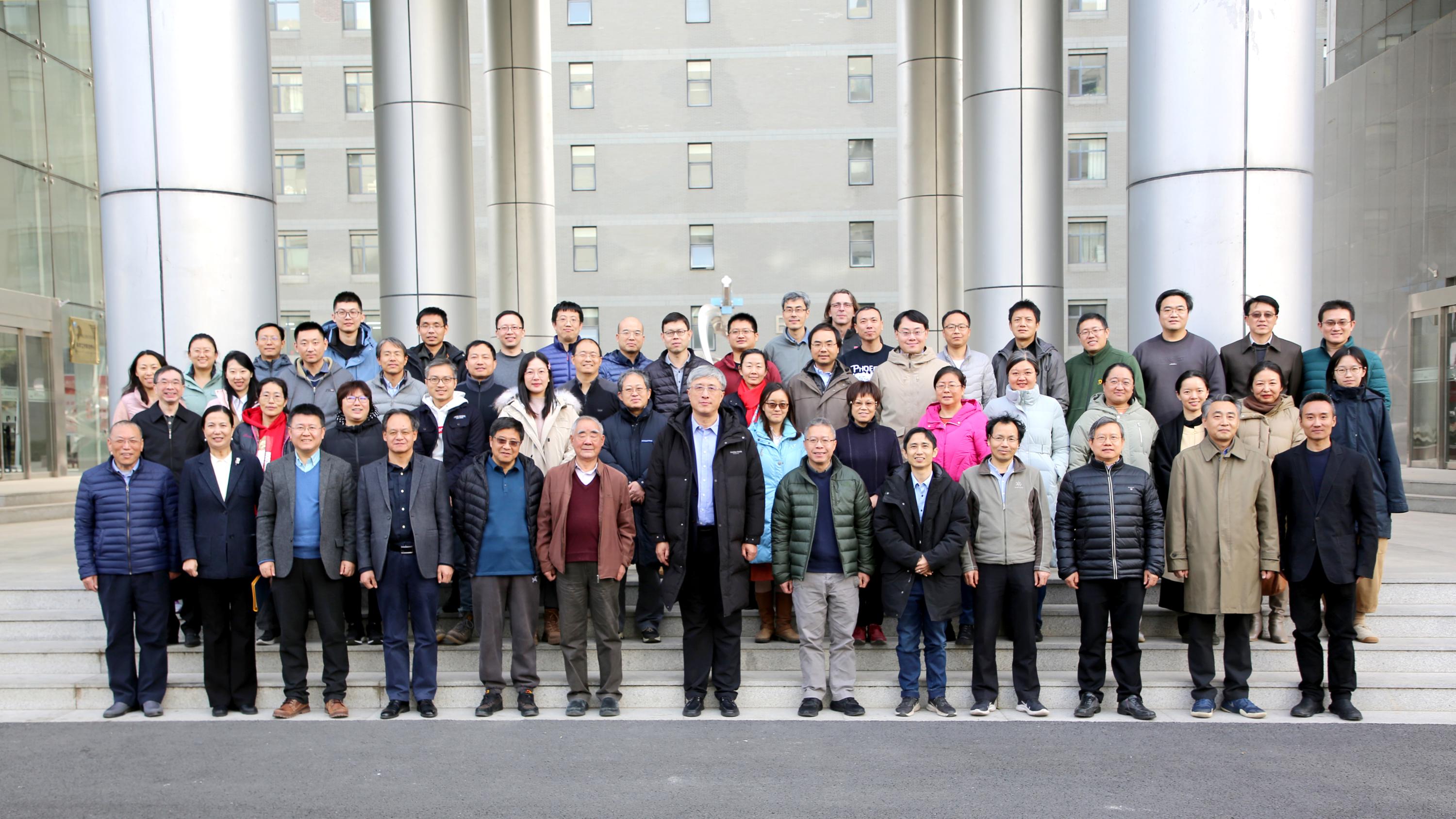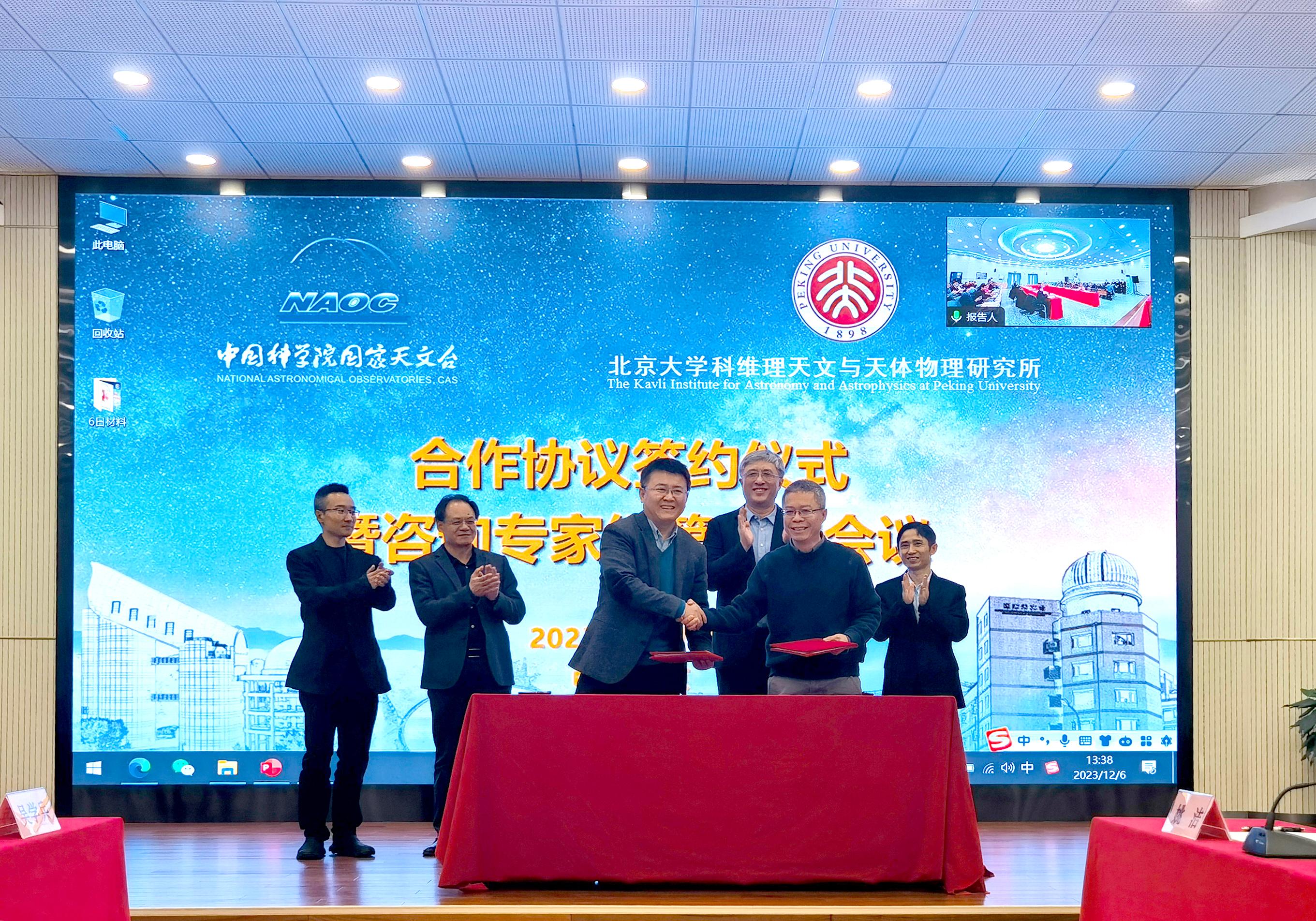On December 6, 2023, the National Astronomical Observatory of the Chinese Academy of Sciences (NAOC) and the Kavli Institute for Astronomy and Astrophysics at Peking University (KIAA) signed a Collaboration Agreement to strengthen research ties. The Signing Ceremony and first meeting of the Advisory Expert Group were both held at NAOC. More than 70 leaders, experts, and researchers attended the meeting (online and offline), including CAS Academicians CHEN Jiansheng, GU Yidong, WANG Jingxiu, JING Yipeng, HAN Zhanwen, SHI Shengcai and ZHAO Gang, as well as WANG Hongyan, Secretary of the Party Committee and Deputy Director of NAOC, LIU Jifeng, Deputy Director of NAOC, ZHAO Gongbo, Deputy Director of NAOC, GAO Yuanning, Dean of the School of Physics of Peking University (PKU), YAN Xueqing, Associate Dean of the School of Physics of PKU, Luis Ho, Director of KIAA, WU Xue-Bing, Associate Director of KIAA and Chair of PKU Astronomy Department, ZHANG Huawei, Vice Chair of PKU Astronomy Department.

Group Photo
LIU Jifeng read a congratulation letter from NAOC director CHANG Jin. CAS academicians GU Yidong, GAO Yuanning, CHEN Jiansheng, WANG Jingxiu, and other experts delivered speeches, expressing that NAOC and KIAA have a long history and a strong foundation of cooperation in many aspects, and that under the framework of the new collaboration agreement, the two sides will surely work together more intensively and produce more cooperation results on science and talents training and to promote the development of astronomy in China.
LIU Jifeng and Luis Ho signed the agreement, witnessed by GAO Yuanning, WANG Hongyan, YAN Xueqing and ZHAO Gongbo.

Signing Ceremony
WANG Hongyan read the list of the Experts Advisory Group, the list of the Leadership Group, and the list of the Working Group.
After the signing ceremony, the first meeting of the Advisory Expert Group was held. WU Xue-Bing introduced the overall situation of the collaboration between the two sides. The proponents of each collaborative research topic made a presentation on their topics, and a total of 24 collaborative topics were introduced. Experts in the meeting had in-depth exchanges and discussions on strengthening the scientific research collaboration between the two sides and expressed their high expectations for the collaboration.